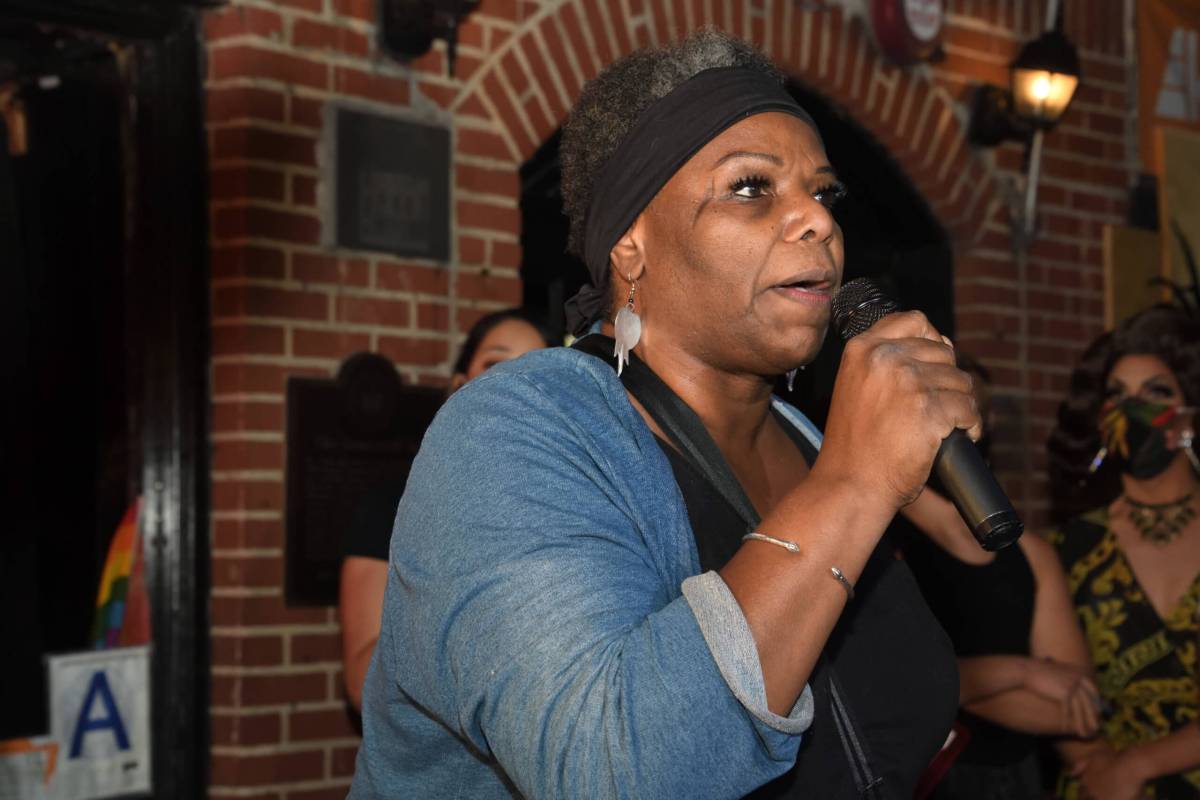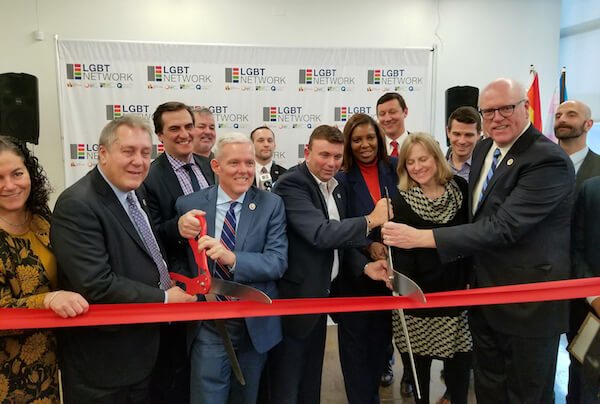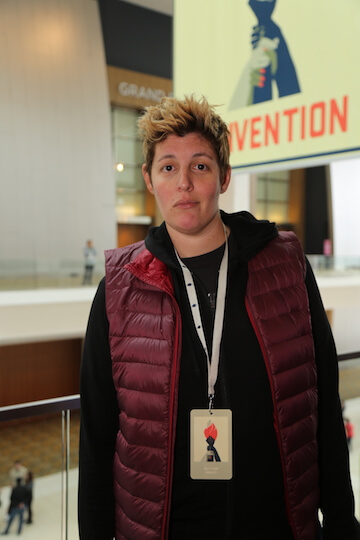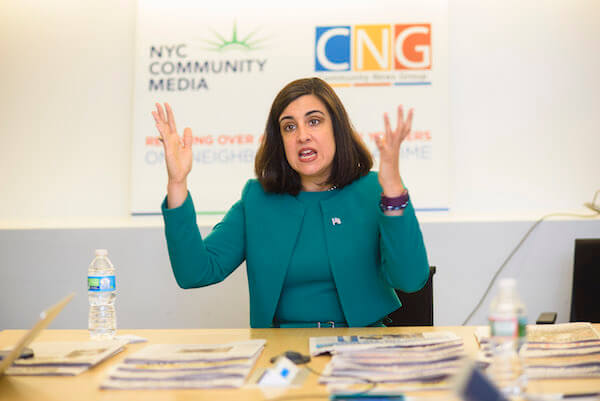The Human Rights Campaign (HRC) on June 26 announced the second lawsuit of the week challenging the Trump administration’s new rule that eliminates nondiscrimination protections based on gender identity and sex stereotyping under the Affordable Care Act (ACA).
Several weeks ago, the Trump Department of Health and Human Services gave final approval to a rule change under Section 1557 of the ACA that had in its original form directed hospitals, other healthcare providers, and insurance companies to offer equal access to health services for trans and gender nonconforming people and to women who have had abortions.
New Yorkers Tanya Asapansa-Johnson Walker, Cecilia Gentili plaintiffs in challenge to Obamacare rule change
HRC, joined by co-counsel BakerHostetler, is going to federal court on behalf of two New York transgender women of color — Tanya Asapansa-Johnson Walker and Cecilia Gentili. Walker, an Army veteran, has survived lung cancer twice and was the co-founder of the New York Transgender Advocacy Group. Gentili, a longtime healthcare policy advocate and activist, formerly worked at GMHC and went on to found Transgender Equity Consulting. Walker, 57, and Gentili, 48, have both lived as out transgender women for more than 30 years.
A written release from HRC quoted Walker saying, “Every visit to the doctor, whether for my lung cancer or other issues, I have to defend my gender identity to the very people responsible for my care. The administration’s decision to roll back regulations that protect LGBTQ people from discrimination in medical settings is a slap in the face to the transgender community that has fought so hard for these necessary protections. They signal to providers that treating a transgender patient with respect and dignity is not required.”
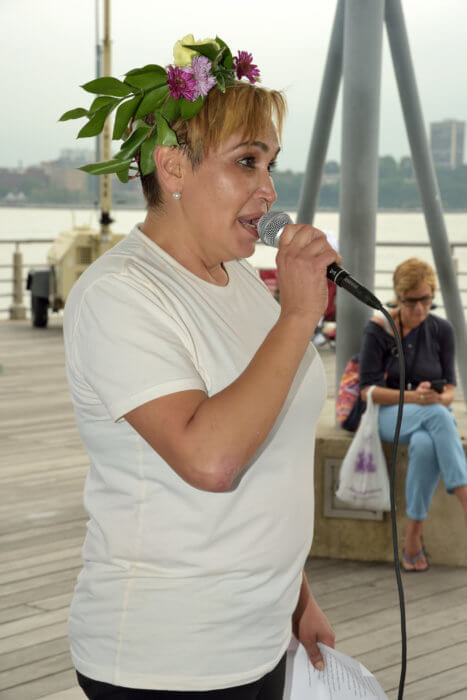
Gentili said, “My work takes me all over the country and I was in Florida when COVID-19 became generally known as a pandemic. As a Latinx transgender woman with COPD and emphysema, I was terrified that, should I become sick in Florida, a state without non-discrimination protections for LGBTQ people in health care, I would receive inadequate care. Because of this regulation, healthcare providers are empowered to either refuse to treat me or provide me with sub-par care on account of my being transgender, which could ultimately lead to severe health consequences or even my death.”
HRC announced this lawsuit four days after Lambda Legal, working with a coalition of LGBTQ healthcare, advocacy, and service groups and co-counsel Steptoe & Johnson LLP, announced a similar challenge to the rule approved by HHS Secretary Alex Azar on June 12.
The HRC press release noted that the group and other opponents of the administration’s rule change had submitted more than 120,000 comments as HHS considered finalizing the rule.
The lawsuit is the first filed by HRC’s new impact litigation unit created last fall under the leadership of the group’s new president Alphonso David, who had previously worked as counsel to New York Governor Andrew Cuomo.
In announcing the suit, David said, “LGBTQ people, and particularly transgender people, have been under constant attack by this federal administration and we are not going to allow them to dismiss and disregard us. Our plaintiffs, Tanya Walker and Cecilia Gentili — like many others in this country — should not be treated as second class citizens by a federal administration hell bent on removing legal protections afforded to transgender people.”
A recent research study by HRC found that one in five LGBTQ adults have not seen a doctor when necessary because of cost — that number rising to 23 and 24 percent, respectively, among Black and Latinx LGBTQ adults and 29 percent of transgender women of any race or ethnicity.
Other studies also demonstrate health disparities among LGBTQ Americans.
A separate HRC study found that 17 percent of LGBTQ adults have no health insurance coverage compared to 12 percent of non-queer adults. That figure rises to 23 percent of LGBTQ people of color, 22 percent of trans adults, and 32 percent of trans people of color.
Lambda Legal found that 56 percent of lesbian, gay, and bisexual people and 70 percent of transgender and gender nonconforming Americans have reported discrimination by healthcare providers, including “physical roughness.”
The National Center for Transgender Equality has found that 23 percent of trans respondents don’t see a doctor when necessary out of fear of being mistreated and that 55 percent of trans people have been denied healthcare coverage when they sought transition-related care.
The legal context surrounding rule 1557 has some degree of complexity. When it was originally formulated in 2016, the final year of the Obama administration, the Department of Justice as well as the Equal Employment Opportunity Commission had determined that sex stereotyping and gender identity discrimination were inherently sex discrimination under nondiscrimination provision of the 1964 Civil Rights Act and later anti-bias laws.
The Trump administration has rejected that conclusion across the board in a variety of contexts involving discrimination in employment, military service, public schools, and access to homeless and domestic violence shelters, among other areas.
When the rule came out, Chase Strangio of the LGBT & HIV Project of the American Civil Liberties Union, immediately tweeted, “An agency can only do what is authorized by the law it is implementing. So if the law says ‘no discrimination on the basis of sex’ an agency can’t decide to disregard that. The statue, not the regulatory definition, is the source of the protection.”
Three days later, the US Supreme Court, in Bostock vs. Clayton County, ruled that employment discrimination based on gender identity and sexual orientation is illegal based on the sex discrimination provisions of Title VII of the 1964 Civil Rights Act. Though the three cases decided on June 15 involved only employment bias, nondiscrimination protections under other provision of the law typically follow precedents established under Title VII.
According to Edward Jacobs, a partner at BakerHostetler working on this lawsuit, the Bostock ruling is “dispositive” regarding the illegality of the new HHS rule.
However, since 2016, there has been a nationwide injunction against enforcement of 1557 issued by US District Judge Reed O’Connor in a case brought by Franciscan Alliance, a Catholic hospital system. That case has stalled in the court system but the injunction continues to prevent 1557’s enforcement. The HRC and Lambda lawsuits seek to restore the original language adopted by the Obama administration, but O’Connor’s injunction remains a hurdle regarding the protections originally afforded under the ACA.
Additional litigation against the Trump administration rule change is likely. On June 15, New York State Attorney General Letitia James announced that she too would initiate a federal lawsuit against it.
To sign up for the Gay City News email newsletter, visit gaycitynews.com/newsletter.

